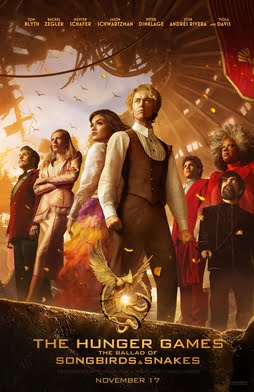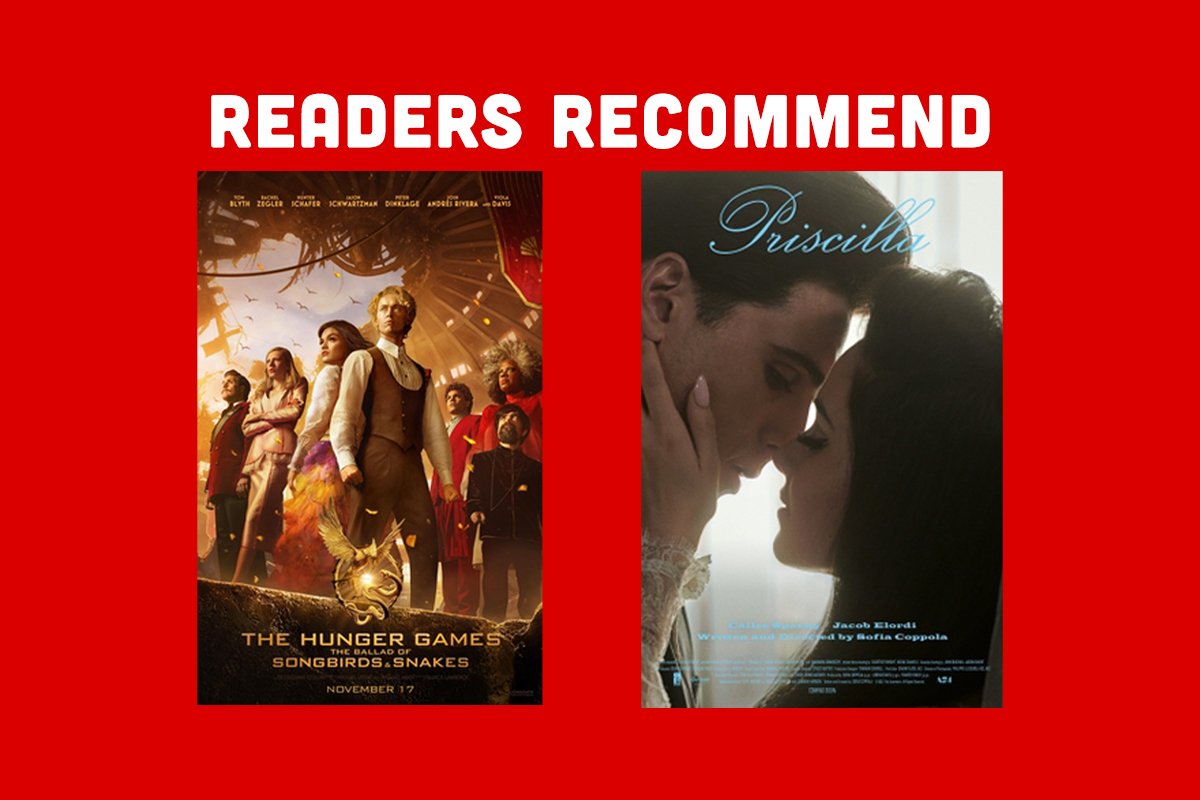The Ballad of Songbirds and Snakes
With the recent release of the prequel film The Ballad of Songbirds and Snakes, now is an appropriate time to reappraise the Hunger Games franchise – one of the 20 highest-grossing movie and book series of all time.
The premise contains clear themes of class struggle: a totalitarian state forces 24 of its younger citizens to fight to the death each year, as punishment for the masses’ attempted revolution in the past.
The series excels in its depiction of class inequality. In Catching Fire, for example, members of the ruling class in the Capitol are shown at a party imbibing a drink that makes them vomit so they can continue feasting. Meanwhile, the protagonist Katniss has seen death by starvation up close in her working-class hometown.

Is this dystopia, or just the reality of capitalism today?
From the very first pages of The Hunger Games, the ‘Peacekeepers’ – a brutal police force – are shown to enforce laws selectively. They turn a blind eye to Katniss’ hunting, as they enjoy her meat; but in a situation of heightened class conflict, in Catching Fire, they crack down on District 12 completely.
Across the world in recent months, capitalist states have been quashing protests that have erupted in response to Israel razing Gaza to the ground.
Similar draconian measures are deployed against the masses in The Hunger Games. Katniss describes how, in her community, “wages are cut, hours extended, [workers] sent into blatantly dangerous work sites”. Protestors and striking workers are shot dead.
But despite the government’s vicious punishments, the establishment cannot suppress the rebellion when the working class begins to move en masse.
Mockingjay shows this revolt succeeding thanks to a highly organised leadership in District 13 – although the novels’ author, Suzanne Collins, comes to some odd political conclusions in the book’s final chapters.
In the prequel The Ballad of Songbirds and Snakes, the class perspective is flipped on its head. The focus is now on the villainous Capitol child Coriolanus Snow, who must work to revive the Hunger Games in order to maintain his family’s prestige, power, and privileges.
When playing the elderly Snow in the original trilogy, Donald Sutherland explicitly stated that he hoped these films would inspire the youth to revolution.
But revolution does not happen by chance – it has to be built for by a class conscious organisation. This is what we are building: a Revolutionary Communist Party.
In The Ballad of Songbirds and Snakes, Snow’s love interest, Lucy Gray, sings to the Capitol: “You can’t take my past / You can’t take my history / Nothing you can take from me was ever worth keeping.”
So too, on the basis of the hammer blow of events, will the working class in our world realise that they have nothing to lose but their chains.
Adam Crawford, Liverpool Communists
Priscilla
Recent cinema release ‘Priscilla’, the latest offering from director Sofia Coppola, is an excellent watch.
The antagonist of the film is less so Elvis, and more so the entertainment industry behind him – often ‘the Colonel’, who recommends that he take drugs and engage in scandals with actresses, and who pushes the singer to perform what he’s not comfortable with.
Media moguls treat 99% of their workers terribly, taking advantage of their passions. This is the source of the recent strikes in Hollywood, for example. But they need their stars too.

The industry’s bosses and managers are like vultures, always on the lookout for new prey. Once they discover their latest talent, they fatten them up like pigs and pamper them, in order to turn them and their output into a sellable mass commodity.
More often than not, these well-paid actors and singers soon lose touch with reality. There’s a reason comedian Ricky Gervais was only funny when he helped to bring these divas and darlings back down to earth at the Golden Globes.
There’s often a price to be paid for attempting to enter the hallowed world of the celebrity, however: mental health illnesses, due to stress and image issues; drug addiction and abuse, often enabled by the media industry and its toxic environment; and even suicide.
This is what happened to Elvis Presley. He grew up rather poor, but got ‘lucky’. The consequence was drug addiction, and an eating disorder that ultimately killed him.
In the process, his wife Priscilla was dragged down with him, forced to suffer the consequences of his lavish, hedonistic lifestyle. This is the focal point of this eponymous movie.
There are many other similar examples of this trend in real life: the ‘27 Club’ of musicians who died at this young age, such as Jimi Hendrix, Janis Joplin, Jim Morrison, Kurt Cobain, and Amy Winehouse; or the ‘slave contracts’ imposed upon Korean pop-stars.
And you can also find popular films depicting this theme – movies such as Perfect Blue, Black Swan, Whiplash, and more. But these films, including Priscilla, don’t fully explain the source of these artists’ problems, beyond the pernicious role of a ‘bad guy’ manager, agent, or mentor.
The truth is, under capitalism, ordinary people’s talents and passions are exploited for profit by big business, with actors, musicians, and supporting workers hung up and bled dry in the process.
The bank accounts of the predatory media bosses – like Harvey Weinstein – are filled to the brim thanks to the blood, sweat, and tears of those working in Hollywood, whether they be at the top or the bottom of the credits.
Only collective control of the film and music industry by the working class can ensure that art and entertainment is produced for the benefit of all. If you love art, cinema, music, theatre, literature, you must fight for revolution!
Jay, Reading Communists






